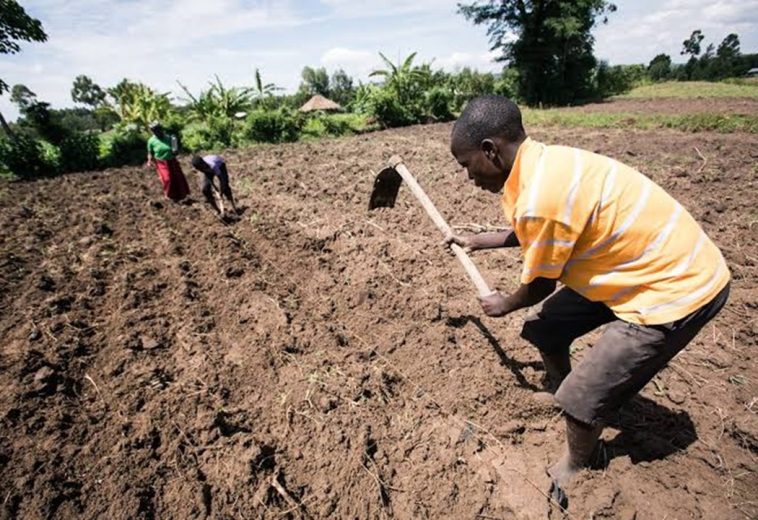In 2024, Africa emerged as a dynamic force in global health, with innovations in healthcare and collaborative initiatives. Against the backdrop of persistent challenges, the continent demonstrated resilience and ingenuity, spearheading initiatives that addressed pressing health concerns while contributing significantly to the global health agenda.
Africa’s journey toward universal health coverage (UHC) showcased steady progress. According to the WHO, the UHC Service Coverage Index (SCI) for the African region rose from 46 in 2017 to 49 in 2019, reflecting incremental improvements in access to essential services. An example is Rwanda’s Community-Based Health Insurance (CBHI), which now covers over 80% of the population, proving that innovative insurance schemes can bridge healthcare access gaps.
READ ALSO: Corporate Efforts to Address Public Health Challenges in Africa
Africa’s Health Tech is Booming
Africa has become a hub for health tech innovation, driven by initiatives such as the Africa CDC’s HealthTech Marketplace, which enabled real-time disease tracking and expanded remote healthcare access. Telemedicine platforms, in particular, have grown, reducing healthcare barriers for rural populations.
Key Innovations Driving Change in the Health Sector
· The use of AI for diagnosing diseases such as malaria and tuberculosis, improving accuracy and reducing delays in treatment.
· Mobile health applications for maternal care and chronic disease management.
·Blockchain technology for transparency in drug supply chains, and to reduce counterfeit medications.
Leading innovators in supply chain represent a growing force in African healthtech industry. On average, these innovators have been in operation for 10 years. Health supply chain startups secured 57% of health tech funding in 2023. Kasha, a leading health supply chain company, reported over $50 million in revenue—the highest to date among African health tech firms.
The 2024 Access to Medicine Index Report reveals that only 43% of new health innovations are reaching Africa. It underscores the pharmaceutical industry’s efforts to reduce health disparities in low- and middle-income countries, addressing challenges such as voluntary licensing agreements and the need for robust regulatory frameworks.
These innovations attracted significant investments. In 2024, health tech startups across Africa raised over $500 million, reflecting global confidence in the continent’s potential to lead healthcare transformation.
Combatting Epidemics in Africa
Africa’s battle against infectious diseases remained crucial. The continent’s strong response to the COVID-19 pandemic laid the groundwork for addressing other health crises.
Efforts to reduce HIV/AIDS infections also showed progress. UNAIDS reported a 25% decline in new infections in 2024, attributed to widespread awareness campaigns and antiretroviral therapy expansion. Additionally, Africa’s role in vaccine production grew, with Senegal’s Institut Pasteur becoming a key player in manufacturing vaccines for the continent.
The World Malaria Report 2024 highlights significant progress within Commonwealth countries in reducing malaria cases. Belize achieved malaria-free certification for the second consecutive year, while African nations such as Cameroon, Gambia, Ghana, Kenya, Mozambique, Sierra Leone, Togo, and Tanzania reported a decline in incidence rates.
Collaborative efforts led to a 40% reduction in malaria cases in some regions, largely due to expanded use of insecticide-treated bed nets and increased access to antimalarial drugs.
The Head of Social Policy Development at the Commonwealth Secretariat, Layne Robinson, said, These findings are set to inform the annual Commonwealth Malaria Report and the Commonwealth Malaria Tracker, initiatives established in 2018 to monitor progress and reaffirm commitments made at the 2024 Commonwealth Heads of Government Meeting in Samoa.
While notable strides have been made in malaria reduction, the upcoming Commonwealth Malaria Report, scheduled for release in early 2025, aims to advance advocacy for comprehensive malaria elimination strategies. These strategies will play a critical role in achieving the ambitious goal of a malaria-free world by 2030.
Workforce Development in Healthcare
Africa’s healthcare workforce remains a critical focus. Initiatives to increase human resource capacity included partnerships with institutions like WHO and the Global Fund. For example, the Africa Medical Corps trained 50,000 healthcare workers in 2024, enhancing their capacity to handle emergencies and deliver quality care.
Incentives to retain skilled healthcare professionals, such as competitive salaries and better career growth opportunities, began reversing the long-standing brain drain issue.
Financing Healthcare through Public-Private Partnerships (PPPs)
The role of financing in advancing healthcare cannot be overstated. Public-private partnerships (PPPs) significantly bolstered Africa’s healthcare infrastructure. In 2024, the African Development Bank allocated $1 billion to health projects, including constructing state-of-the-art hospitals and funding health tech innovations.
International support also remained strong, with the Global Fund contributing $4 billion to fight HIV/AIDS, tuberculosis, and malaria. Domestically, countries like Nigeria and Kenya increased healthcare spending relative to GDP, signalling a renewed commitment to improving public health.
Africa’s Global Leadership in Health
Africa’s contributions to global health extended beyond its borders. The Africa HealthTech Summit in Nairobi brought together over 10,000 stakeholders, promoting sustainable healthcare solutions and addressing climate change’s impact on health systems.
Additionally, Africa’s leadership in addressing health inequities resonated globally. The continent championed the WHO’s Equity in Health initiative, advocating for fair resource distribution and equal access to care.
Challenges and Opportunities
Despite significant strides, challenges persist. The dual burden of infectious and non-communicable diseases strains healthcare systems. Climate change exacerbates health vulnerabilities, with rising temperatures increasing the prevalence of vector-borne diseases.
In Sub-Saharan Africa, around 11% of households are pushed into poverty annually due to catastrophic healthcare costs. The region’s average of 1.55 skilled health professionals per 1,000 people remains far below the WHO’s minimum threshold of 4.45. These challenges underscore the urgent need for systemic reforms and equitable resource distribution.
Despite the commitments made under the Abuja Declaration two decades ago, in which African governments pledged to allocate 15% of their national budgets to healthcare, the average allocation in 2024 was only about 7.4%. This figure represents less than half of the promised investment, highlighting a persistent gap in funding needed to achieve meaningful healthcare improvements.
Africa’s evolving role in global health throughout 2024 illustrates a continent on the rise—leveraging technology, forging strategic partnerships, and driving policy reforms. While substantial challenges remain, such as funding shortfalls and health workforce capacity, Africa’s growing influence in healthcare innovation cannot be overlooked.
With increased investments in health tech and public-private partnerships, alongside strengthened regional cooperation, Africa is not only addressing its own healthcare needs but also shaping global health solutions.




